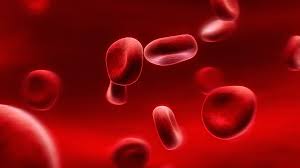
Breaking News
 SILVER CRASHES TO $75 - But China Is Paying $89 (Ghost Week Trap)
SILVER CRASHES TO $75 - But China Is Paying $89 (Ghost Week Trap)
 Firegate: Democrat LA Mayor Karen Bass' Admin Altered Palisades Fire Report & Deleted Evidence
Firegate: Democrat LA Mayor Karen Bass' Admin Altered Palisades Fire Report & Deleted Evidence
 BREAKING: Candace Owens' Massive Mind Control House of Cards is Now Collapsing in Real Time
BREAKING: Candace Owens' Massive Mind Control House of Cards is Now Collapsing in Real Time
 We Cannot Build an Economy on Lies
We Cannot Build an Economy on Lies
Top Tech News
 EngineAI T800: Born to Disrupt! #EngineAI #robotics #newtechnology #newproduct
EngineAI T800: Born to Disrupt! #EngineAI #robotics #newtechnology #newproduct
 This Silicon Anode Breakthrough Could Mark A Turning Point For EV Batteries [Update]
This Silicon Anode Breakthrough Could Mark A Turning Point For EV Batteries [Update]
 Travel gadget promises to dry and iron your clothes – totally hands-free
Travel gadget promises to dry and iron your clothes – totally hands-free
 Perfect Aircrete, Kitchen Ingredients.
Perfect Aircrete, Kitchen Ingredients.
 Futuristic pixel-raising display lets you feel what's onscreen
Futuristic pixel-raising display lets you feel what's onscreen
 Cutting-Edge Facility Generates Pure Water and Hydrogen Fuel from Seawater for Mere Pennies
Cutting-Edge Facility Generates Pure Water and Hydrogen Fuel from Seawater for Mere Pennies
 This tiny dev board is packed with features for ambitious makers
This tiny dev board is packed with features for ambitious makers
 Scientists Discover Gel to Regrow Tooth Enamel
Scientists Discover Gel to Regrow Tooth Enamel
 Vitamin C and Dandelion Root Killing Cancer Cells -- as Former CDC Director Calls for COVID-19...
Vitamin C and Dandelion Root Killing Cancer Cells -- as Former CDC Director Calls for COVID-19...
 Galactic Brain: US firm plans space-based data centers, power grid to challenge China
Galactic Brain: US firm plans space-based data centers, power grid to challenge China
Scientists Are Racing to Create Synthetic Blood in the Wake of Mass Tragedies

The Las Vegas shooting is the latest reminder that human blood isn't enough for massive, unexpected transfusions.
In the aftermath of the Las Vegas mass shooting on Sunday, hundreds of people lined up to give blood at a handful of donation centers in the area. It was a heartening scene—people hoping to help in any way they could. But if science lives out its promise, it will one day be an obsolete one.
Scientists have been working on creating synthetic blood for years now. The hope is that this substance will have a longer shelf life than human blood—which can only be refrigerated for 42 days—and eventually can be packaged and stored for use in emergencies. If this works, thousands of lives could be saved every year.
"People can't show up fast enough and then the system can't draw their blood fast enough to meet the need," said Allan Doctor, a physician and researcher at the Washington University in St. Louis. "Pulse nightclub, Boston Marathon, now Vegas—all of these are situations where there's a sudden unpredictable need for massive transfusion."
Doctor's lab has been working to create a blood substitute called ErythroMer, comprised of human hemoglobin, sourced from the red blood cells in expired blood at blood banks, and a synthetic polymer. This synthetic blood is actually a dehydrated powder, which would allow it to be stored for years, rather than weeks, and easily transported. Doctor envisions that it could eventually be packaged along with purified water so that doctors or EMTs could mix it when they needed to use it on a patient.
ErythroMer is still in the planning stages. It has only been tested on animals, and Doctor predicts that the team is about three to five years from the first human trials. Following that, it will need FDA approval, and then healthcare workers will need to be trained to use it properly to avoid infections. "It's important for us to have a bulletproof delivery system," Doctor told me. He predicts that it will be available in six to 10 years if the trials are successful, and if they can make a cost-effective formula.



